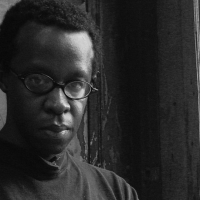Before I sat down to write these thoughts on Matthew Shipp’s newest solo piano recording Zero, I kind of prepared for it by listening to a couple of other Shipp albums: Nu Bop and Equilibrium. That pair of albums from more than fifteen years ago could hardly be any different than the one discussed here as they are ensemble affair that incorporated electro flourishes and hip hop beats. Or are they really that different? Because, peel away those layers and it’s still the same Matthew Shipp who has long since returned exclusively to all-acoustic formats and has been making solo piano records more often than he used to. He has a way about the piano that’s his and only his that shines through no matter the setting.
Zero is another one of those ‘pure’ Matthew Shipp releases where there’s nothing in between the depths of his soul and your ears. Though these pieces are generally short, he devotes every note toward an idea, and packs in several ideas into a song before the last note is played.
About the same time those two aforementioned electro/acoustic records in the early Aughts, Shipp did make a solo piano album, One, and in it is a song he wrote entitled “Zero.” The “Zero” on this album by the same name is not the same tune. It streams out like water flowing downhill: it never takes a straight path, only the one where it’s directed to go by nature.
“Abyss Before Zero” is a delicate unraveling of a pretty melody and “Pole After Zero” and “Piano Panels” follow a jagged melody. But while a Cecil Taylor might have gone off the abyss, Shipp keeps a firm poise and sketches out a definable architecture. More often than not, Shipp summons up the spirit of Mal Waldron, as on the deliberate, introverted “Zero Subtract From Jazz” but also separates himself from Waldron with his sharper edges.
“Cosmic Sea” has a strain that at times feels as if Shipp is covering a classic Tin Pan Alley Song before wandering just far enough to add suspense with many little, unpredictable turns. The shifty knottiness that Shipp has only teased on “Cosmic Sea” and other tracks reveals more of itself with “Zero Skip and a Jump.”
The blues is in fact present on “Blue Equation,” but Shipp substitutes out of some of the blues chords, leaving just enough behind to qualify as a blues song. And “After Zero” is a discourse that pulls together a potpourri of ideas and organizes them into a discourse in the cadence of storytelling.
Zero is now available by ESP-Disk.
- Claudio Scolari Project – ‘Bloom’ (2025) - June 12, 2025
- Denny Zeitlin – ‘With a Song In My Heart: Exploring The Music of Richard Rodgers’ (2025) - June 4, 2025
- Ches Smith Quartet – ‘Clone Row’ (2025) - May 30, 2025



